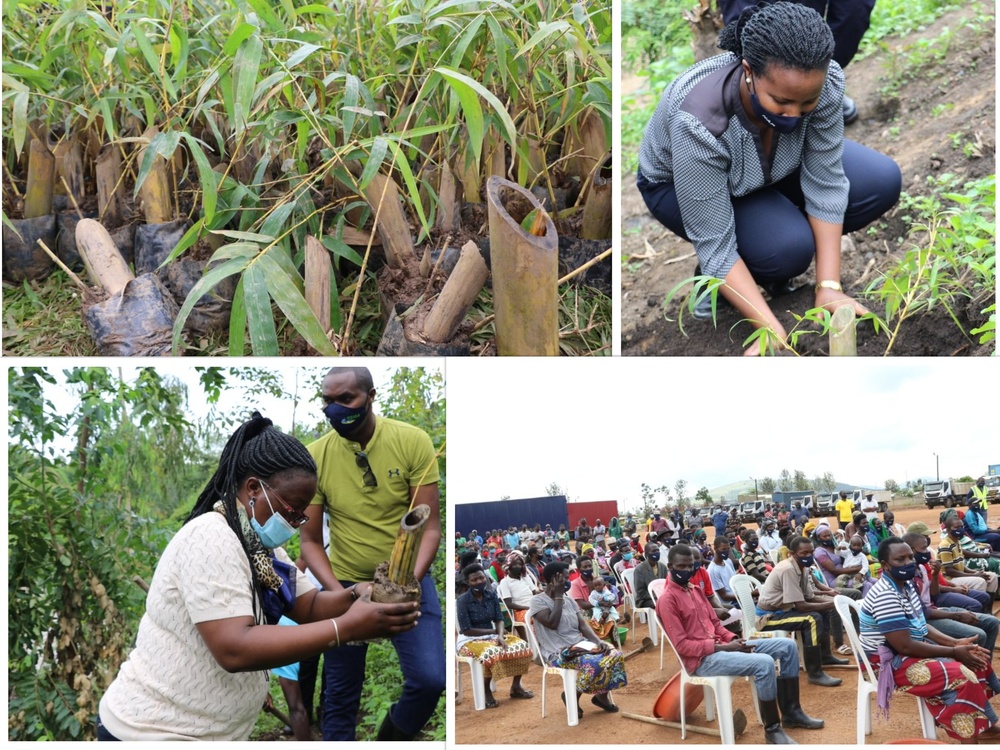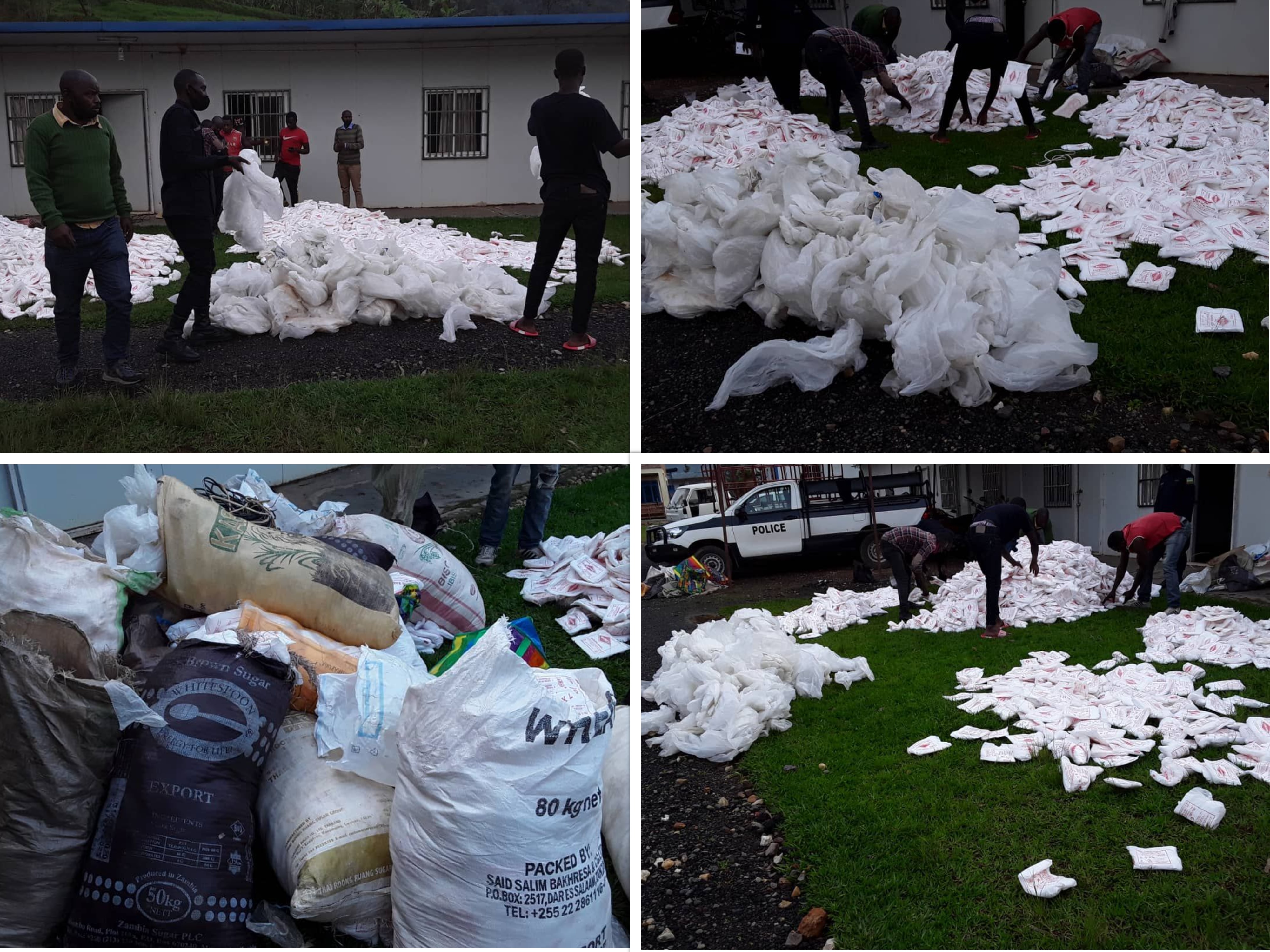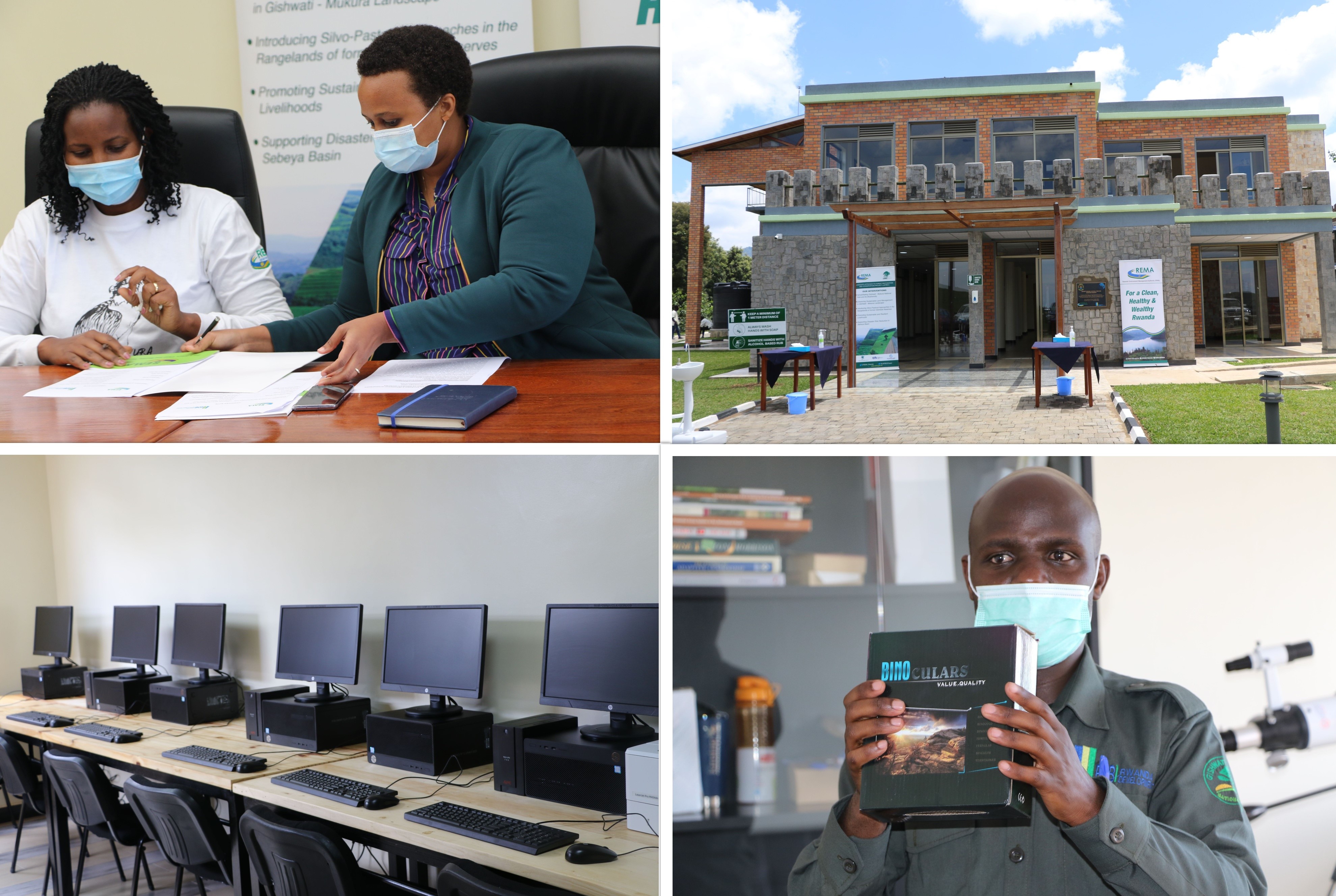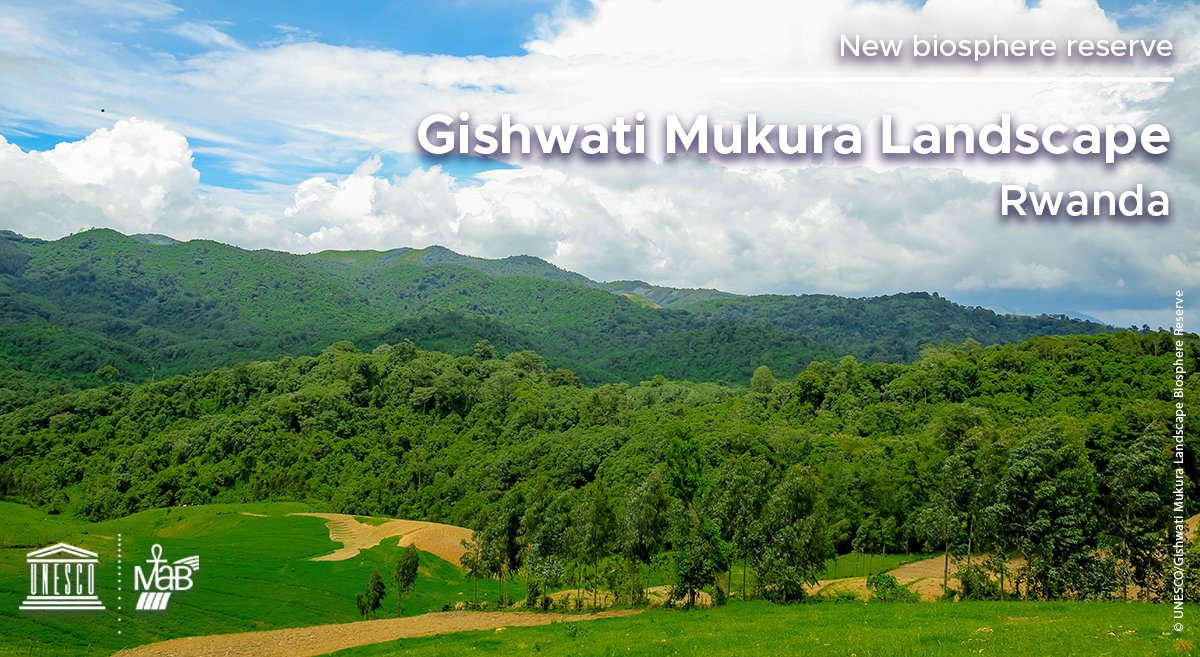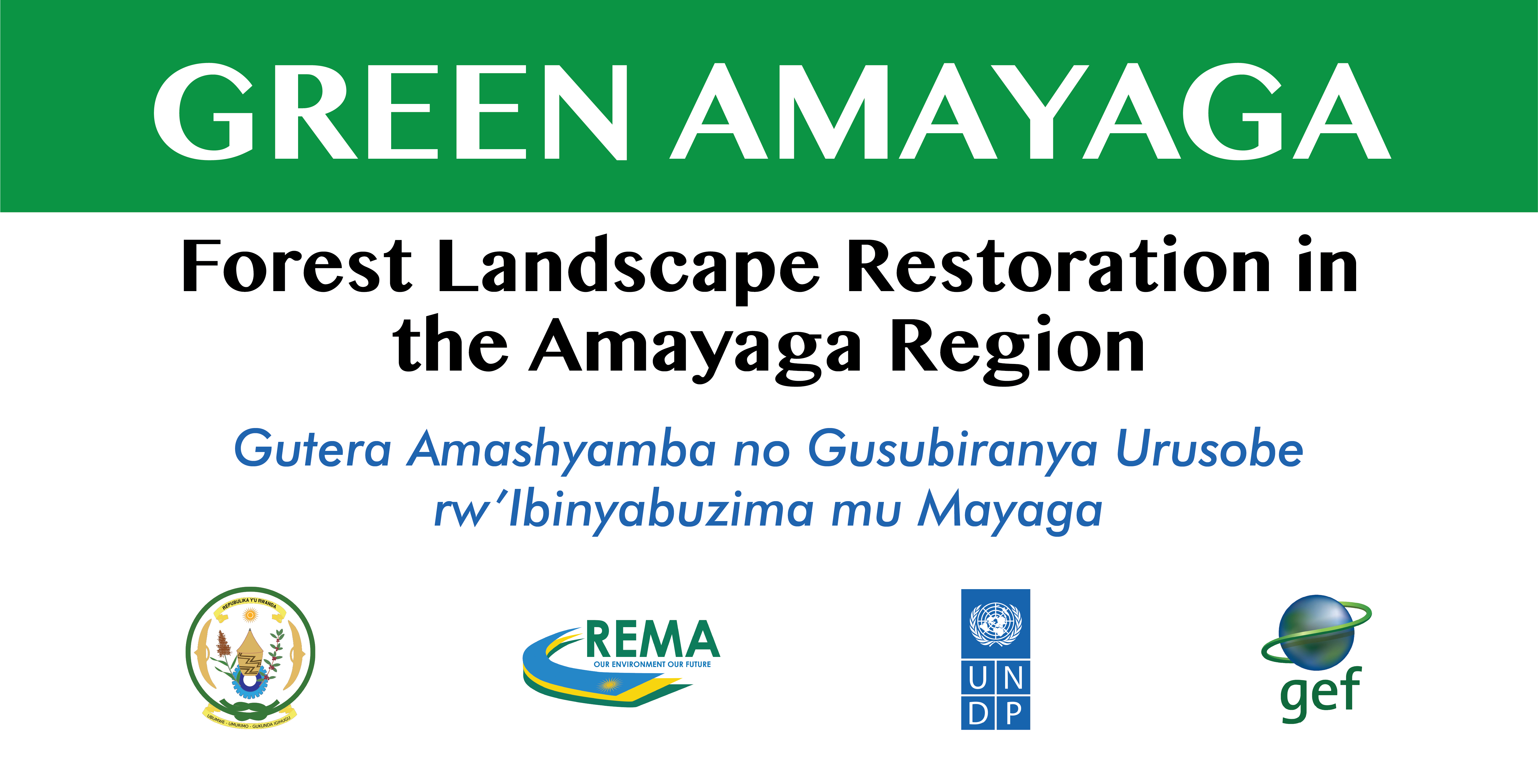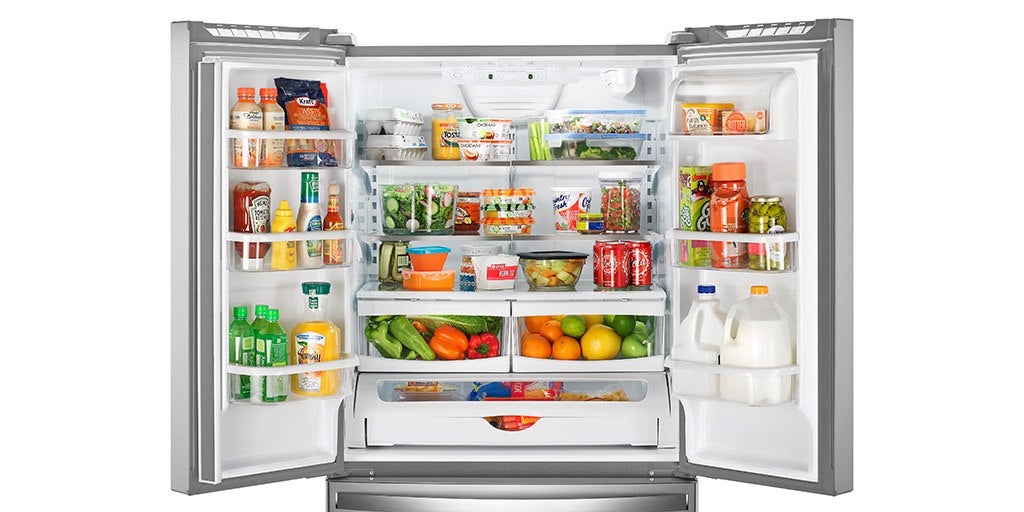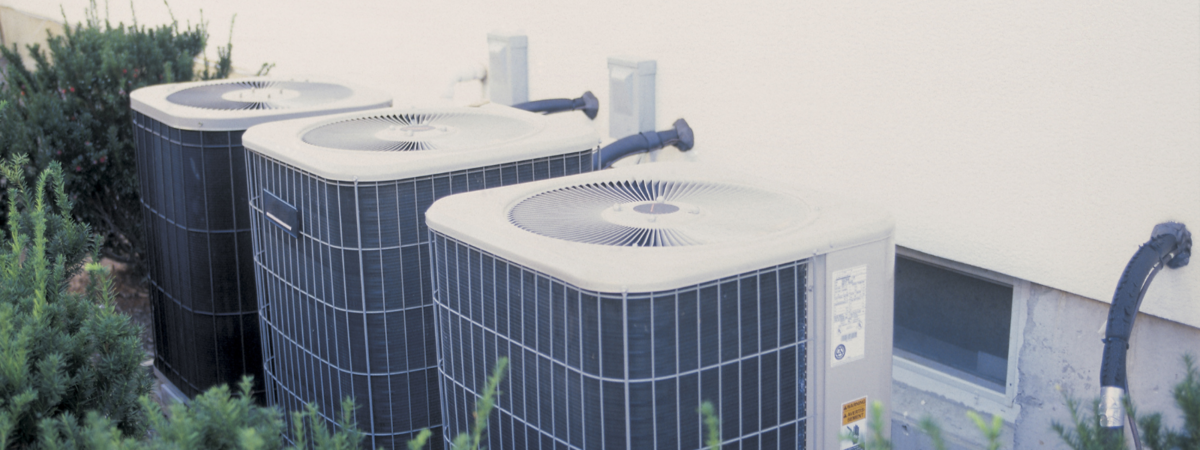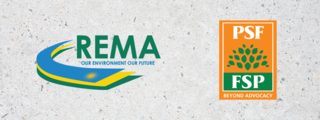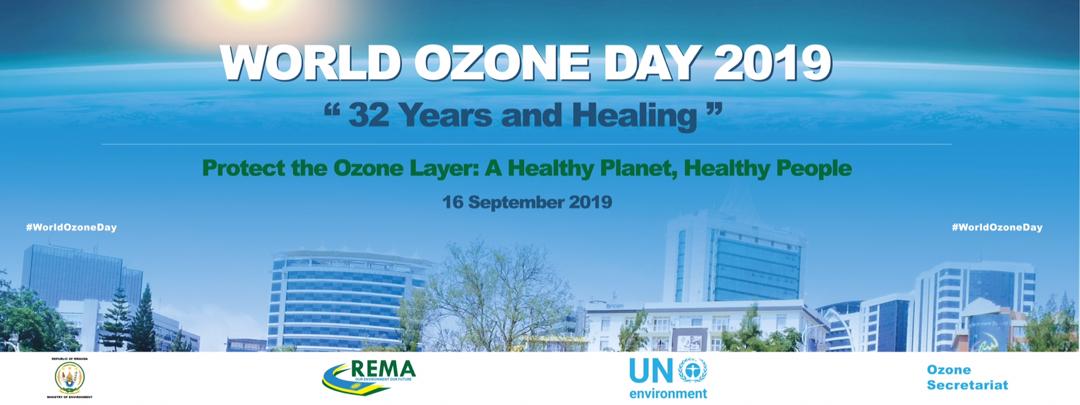
Rwanda joins the rest of the world to celebrate the World Ozone Day 2019
Rwanda is this coming Monday joining the rest of the world to celebrate the World Ozone Day celebrated under the theme “32 years and healing”. The day is celebrated annually on 16th September, proclaimed by the UN General Assembly to be the International Day for the Preservation of the Ozone Layer.
This acknowledges the date of 16 September when representatives from 24 countries met in Montreal-Canada and announced to the world that it was time to stop destroying the ozone layer (16September 1987).
The theme for this year celebrates over three decades of remarkable international cooperation to protect the ozone layer and the climate under the Montreal Protocol. It reminds us that we must keep up the momentum to ensure healthy people and a healthy planet.
For Rwanda, by celebrating the World Ozone Day, the country celebrates its success with its support to the Montreal Protocol especially the Kigali Amendment to the Montreal Protocol, which entered into force on 1 January 2019. Currently, more than 78 countries have already ratified the Kigali Amendment to phase out hydrofluorocarbons (HFCs) that are most potential climate-warming gases. It is important to note that the phasing down of HFCs, will avoid up to 0.4°C of global temperature rise by the end of the century.
Causes and Effects of Ozone Layer depletion
The Ozone layer depletion is normally caused by human activities and human made chemicals especially manufactured halocarbon refrigerants, solvents, propellants and foam-blowing agents that bring chlorine and bromineto the stratosphere, causing then the depletion of ozone layer.
The Ozone layer depleting substances include Chlorofluorocarbons (CFCs), Hydrochlorofluorocarbons (HCFCs), Hydrobromofluorocarbons (HBFCs), Halons, Methyl bromideandCarbon tetrachloride. Those substances have been used as refrigerants in air conditioners, refrigeration equipment, cold rooms and other cooling systems.
The effects of Ozone layer depletion of on human beings include skin cancer, increase in risk of cataract, weakened human immune systems , DNA damage as well as Lung Diseases since Ultraviolet radiations can disturb biomolecules such as lipids, proteins and Nucleic acids.
Effects of ozone layer depletion can also lead to food shortage as Ultraviolet radiations disturb developmental and physiological processes that decrease the productivity of crops.
Ultraviolet radiation also affects wildlife as well since ozone depletion may lead to a loss of plant species and reduce global food supply.
To contribute to the protection of Ozone layer, people are encouraged to use natural gases, timely maintain their cooling equipment such as air conditioners, refrigerators and other heating and cooling systems and also avoid usage gases and chemical products that are dangerous to the ozone layer.
Topics
More posts
Africa’s clean cooling centre of excellence moves closer to boosting farmer’s livelihoods
The Rwandan Government has formally launched the new African Centre of Excellence for Sustainable Cooling and Cold Chain (ACES) that is hosted…
Rwanda launches economy-wide project to advance climate adaptation planning
The Ministry of Environment and the Rwanda Environment Management Authority are launching a groundbreaking project to build the country’s capacity to…
Polisi y’u Rwanda yafashe amasashe atemewe afite agaciro karenga miriyoni 40
Polisi y’u Rwanda ikorera mu karere ka Rulindo yafashe amapaki 402,000 y’amasashe atemewe mu Rwanda. Ayo masashi yafashwe mu mukwabo polisi yakoze…
REMA handed over to RDB infrastructures installed by LAFREC Project
On Thursday, November 12, 2020, the Rwanda Environment Management Authority (REMA) has handed over to Rwanda Development Board (RDB), infrastructures…
Gishwati-Mukura National Park named a Biosphere Reserve
Rwanda’s Gishwati-Mukura landscape has been named among the World Network of Biosphere Reserves by the United Nations Educational, Scientific and…
Rwanda launches ambitious forest and landscape restoration initiative to address climate change and improve livelihoods
Kigali, Rwanda | 22 October 2020, Rwanda is launching an ambitious landscape restoration project that will restore the natural forests of Amayaga in…
REMA yatangije gahunda nshya yo korohereza abifuza kugura ibikoresho bikonjesha bitangiza ikirere
Ikigo cy’igihugu cyo kubungabunga ibidukikije REMA cyatangije umushinga wa gahunda nshya izorohereza abashaka gutunga ibikoresho bikonjesha bizigama…
New Way to Pay for Climate-Friendly Fridges and ACs in Rwanda
The Rwanda Environment Management Authority (REMA) has announced a partnership with Banque Populaire du Rwanda to offer on-bill financing to make…
Rwanda Environment Management Authority and Private Sector Federation partner to advance green growth and the circular economy
The Rwanda Environment Management Authority and Private Sector Federation have launched a new partnership that will foster greater collaboration on…

